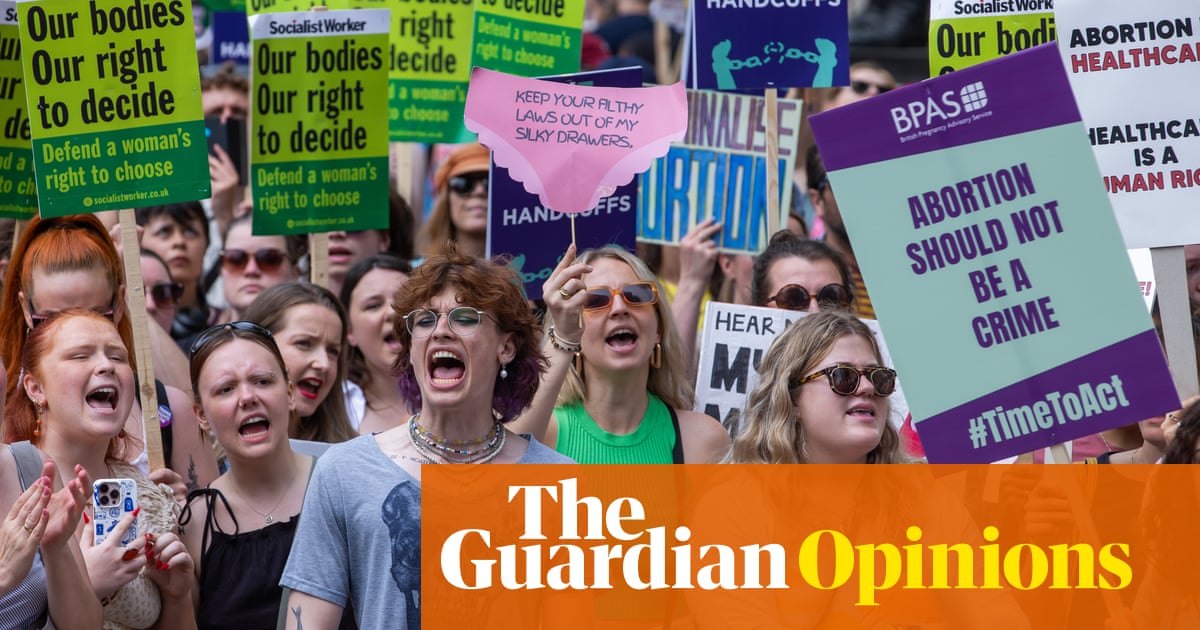Earlier this month, Nicola Packer was found not guilty of illegally terminating a pregnancy, after taking abortion pills beyond the legal limit of 10 weeks. She had spent more than four years living in the shadow of this prosecution, every detail of which –as reported by Phoebe Davis– is completely harrowing. In 2020, Packer was arrested before she left Chelsea and Westminster hospital, still bleeding from major surgery.
Packer is one of six women to be prosecuted for this crime inEnglandsince the end of 2022, under the Offences Against the Person Act, which had previously only been used in such cases three times since its introduction in 1861. Even that striking, inexplicable figure doesn’t begin to describe how many people have fallen victim to these prosecutions. There have been cases of women denied contact with their children while police investigated a charge that came to nothing. A teenager who had a late miscarriage was arrested in front of her entire street – her privacy, her education, her peace of mind completely destroyed.
The consequences are so dire if you get caught in this net that informed women would rightly think twice about being honest with healthcare professionals – so quality of care is undermined for everyone. And while attempts are being made in parliament to take abortion legislation out of criminal law altogether, so that no woman is ever prosecuted in this intrusive and barbaric way in the future, as things stand at the moment, the situation is getting more perilous for women, not less.
Campaigners in the field – notably Jonathan Lord, who is co-chair of the Royal College of Obstetricians and Gynaecologists abortion taskforce, and Hayley Webb, co-chair of Doctors for Choice UK – believe that some midwives and nurses are mistaken or confused about their duty of patient confidentiality.Abortionproviders such as the British Pregnancy Advisory Service (BPAS) wonder whether the emergency measures taken during Covid – to allow abortion pills to be prescribed remotely, rather than in person – have ushered in new anxiety around women’s autonomy.
Last December the National Police Chiefs’ Council issued new guidance on “child death investigation”, advising that women’s devices be checked for period tracker apps, Google searches, any communications that might “establish a woman’s knowledge and intention in relation to the pregnancy”. WhenHampshire police found a human placenta in woodland in 2023, they asked BPAS for a full list of women who had made inquiries about a termination and then disengaged. BPAS was astonished by the request – it could have swept in hundreds of women, and didn’t even have the legitimacy of a court order.
Sometimes it is the police that seem overzealous, as in Packer’s case; the Crown Prosecution Service wanted to drop it, and the Met successfully appealed that decision. Ultimately, though, it would be far-fetched to try to chase down a new anti-abortion tendency in assorted police forces. If there are increasing numbers of investigations and prosecutions, which there are, it is for the director of public prosecutions for England and Wales to explain why.
Two years ago, I sought that explanation from the then DPP, Max Hill KC. The most formulaic response came back: he said he had “a duty to ensure that laws set by parliament are properly considered and applied when making difficult charging decisions”. This law having been in place for more than 150 years, further explanation would have been helpful as to why that duty had become so pressing after 2020.
Hill was succeeded the same year by Stephen Parkinson, who is now being urged by campaigners to do a more robust public interest test on cases like Packer’s. Many women’s groups question whether there is ever a public interest case for prosecuting a woman under these circumstances.
It remains unknown what is driving these prosecutions, between an excess of caution post-Covid, a new wave of cultural misogyny finding its expression in reproductive surveillance, and a failure of institutional memory on the part of some healthcare workers as to what their duties are to their patients – or all these factors and more in some tangled feedback loop. Whatever the cause, everyone must now do their bit. Parliamentarians musttake abortion out of the criminal law altogether, and the law itself, in the meantime, must rediscover its proportionality and reason.
Zoe Williams is a Guardian columnist
